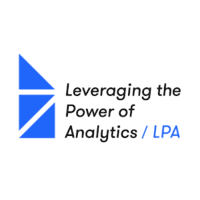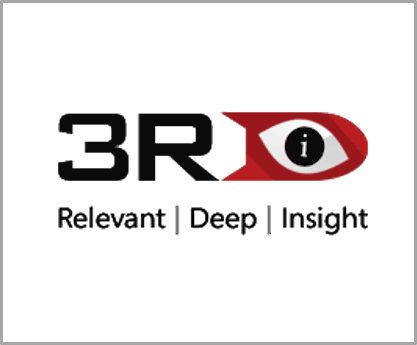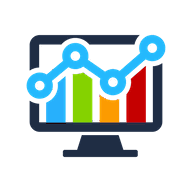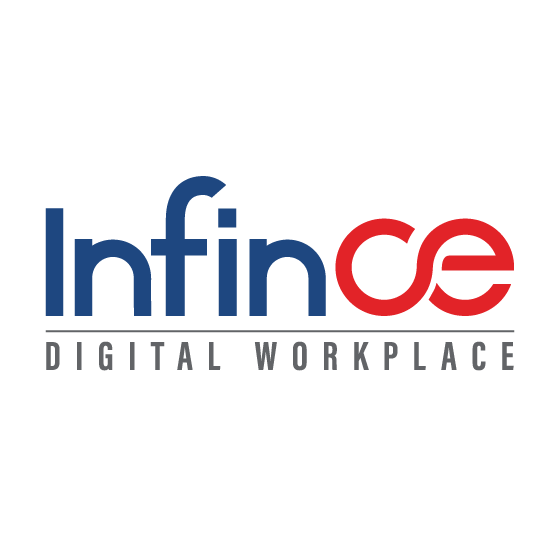Yes, business intelligence tools may be accessible from various devices and platforms. Most modern BI solutions are built to work with a variety of devices, including computers, smartphones, and tablets. They can also be accessed through many operating systems, including Windows, macOS, iOS, and Android. This allows users to view and evaluate their data on the fly, increasing productivity and efficiency. Furthermore, cloud-based BI solutions provide seamless accessibility without the requirement for specialized gear or software installations.
List of 20 Best Business Intelligence Tools
a software, Healthcare Financial Analytics – solution for healthcare institutions to optimize financial performance, simplify operations, and drive strategic decision-making with cutting-edge data analysis, predictive modeling, and up-to-the-m...Read More Healthcare Financial Analytics
Hairball is the ultimiate software solution for businesses looking to optimize their operations. By harnessing the power of NetSuite and Celigo, Hairball helps streamline processes and drive efficiency for companies of all sizes. Join the hundreds of...Read More Hairball
Oxylabs solution for secure and efficient data gathering. Our residential proxies provide genuine IP addresses associated with physical locations, ensuring maximum anonymity and minimal blocking. With Oxylabs, you can seamlessly collect public data w...Read More Oxylabs
3RDi Search solution for enterprise search. This advanced software overcomes various challenges, such as efficiently managing unstructured content and uncovering valuable insights for business improvement. With its unparalleled capabilities, 3RDi Sea...Read More 3RDi Search
Visualr is a Business Intelligence solution for all deployment requirements. Its powerful features and intuitive drag and drop interface make creating custom visualizations a breeze. Take your data analysis and decision-making to new heights with Vis...Read More Visualr
the Power BI Connector for Jira, a highly popular and easy-to-use app with over 4500 installations. This powerful tool enables seamless integration between Jira and Power BI, without any coding required. Developed by Alpha Serve, a reputable Platinum...Read More Power BI Connector for Jira
Arcadia Data is the data analysis software that boasts unparalleled speed and advanced concurrency, making it the perfect solution for handling even the largest of data sets. Renowned organizations like RBC Royal Bank and Forrester trust Arcadia Data...Read More Arcadia Data
Databox is a business intelligence software designed to help drive your business to success. With a variety of customizable KPI dashboards and personalized support, Databox simplifies the process of connecting and tracking your most important metrics...Read More Databox
PriceIntelGuru - a price intelligence solution designed to empower businesses with real-time and accurate pricing information about their competitors. With this powerful software, organizations can effortlessly monitor and analyze their competitors p...Read More PriceIntelGuru
InfinCE - a platform that improves employee productivity and security, while also reducing operational costs. Created for the modern workplace, InfinCE offers a wide array of advanced features to streamline processes and enhance efficiency. With Infi...Read More InfinCE
Birst, an Infor Company, is web-based BI and analytics platform designed to enhance collaboration and support informed decision-making. By offering seamless connectivity and robust data analysis, visualization, and reporting capabilities, Birst empow...Read More Birst
Revuze is a market research software designed to support product, marketing, QA, and consumer insights professionals. Our advanced tool simplifies the research process and provides quick access to actionable insights for better decision-making. With...Read More Revuze
Hatch, a software that is transforming the industry with its innovative approach. Utilizing cutting-edge technology, Hatch provides game-changing solutions that streamline processes, enhance efficiency, and raise the bar for businesses. Its advanced...Read More Hatch
Officekithr the HR software that helps you efficiently manage your employees and payroll. Keep track of employee data, monitor attendance, and elevate your HR management with ease using our user-friendly interface. Streamline your processes and save...Read More Officekithr
BIRD Analytics provides your business with lightning-fast intelligence at any scale. Our full-stack cloud-based platform delivers instant analysis on both batch and streaming data with ease. With a highly scalable enterprise data warehouse, unleash t...Read More BIRD Analytics
SmartDocs SmartFlo is a Business Process Management Solution built with advanced SAP technology to enhance efficiency and drive success for enterprises. It offers unparalleled accountability, empowering organizations to effortlessly reach their objec...Read More SmartDocs SmartFlo
UltiPro by Ultimate is a cloud-based HR solution designed to simplify and optimize your HR processes. With its powerful payroll engine, you can effectively manage employee information, benefits, and performance evaluations all in one convenient platf...Read More UltiPro
Looker is a leading business intelligence platform designed for small and medium-sized enterprises. Its intuitive interface and advanced features enable businesses to unlock the potential of big data for valuable insights. By leveraging human intelli...Read More Looker
Torqus Online Ordering is a solution designed to elevate the online food ordering experience for restaurants and F&B outlets. With its user-friendly website and app, setting up your own ordering platform is a breeze. This versatile module offers a si...Read More Torqus Online Ordering
Cerrebro CRM is a cloud-based solution for managing field teams and connecting with customers and back-office staff effortlessly. With a convenient dashboard accessible from any device, you can increase productivity and streamline processes in any in...Read More Cerrebro CRM
Learn More About Business Intelligence Tools
- What Is Business Intelligence Tools?
- What Are The Recent Trends In Business Intelligence Tools?
- Benefits Of Using Business Intelligence Tools
- Important Factors To Consider While Purchasing Business Intelligence Tools?
- What Are The Key Features To Look For In Business Intelligence Tools?
- Why Do Businesses Need Business Intelligence Tools?
- How Much Time Is Required To Implement Business Intelligence Tools?
- What Is The Level Of Customization Available In Business Intelligence Tools?
- Which Industries Can Benefit The Most From Business Intelligence Tools?
- Conclusion
What Is Business Intelligence Tools?
Business intelligence tools are software applications that assist organizations in gathering, analyzing, and visualizing enormous volumes of data so that they may make informed and strategic business decisions. Essentially, these technologies give firms a full perspective of their data, allowing them to uncover trends, patterns, and insights that might otherwise go unreported.
These tools aggregate data from a variety of sources, including databases, spreadsheets, and other business systems, then organize and present it in an understandable fashion. This enables users to simply access and examine the data, revealing key insights and correlations that can aid in business growth and profitability.
One of the most important elements of business intelligence tools is their capacity to generate visuals such as charts, graphs, and dashboards, which give a straightforward way to communicate complicated data and trends to stakeholders throughout the organization. These visualizations can be tailored to the company's specific needs and goals, making it easier to monitor performance, identify problem areas, and make data-driven decisions.
In addition to data visualization, business intelligence solutions provide a variety of other features such as data mining, predictive analytics, and reporting. Data mining enables firms to discover hidden patterns and relationships in their data, whereas predictive analytics analyzes previous data to forecast and predict future results.
The reporting functionality allows users to create extensive reports that can be shared with stakeholders and used to influence decision-making processes. When selecting a business intelligence tool, it's critical to analyze the precise features and functionalities that correspond with your company's objectives, as each tool may provide a distinct set of capabilities.
Some common considerations include data storage and management, simplicity of use, data visualization tools, and connectivity with other corporate systems. To summarize, business intelligence tools are critical in modern company operations because they enable firms to collect, analyze, and visualize massive volumes of data in a powerful and efficient manner. Businesses that use these tools can acquire useful insights while also driving growth and success in today's data-driven market.
What Are The Recent Trends In Business Intelligence Tools?
Recent Trends in Business Intelligence technologies: In today's data-driven environment, business intelligence (BI) technologies are increasingly important. These technologies assist companies in making sense of the massive volumes of data they acquire and using that information to make informed decisions. The BI tools industry is continually changing as technology advances and the demand for data analysis grows.
Here are some of the latest trends in business intelligence tools:
1. Self-Service BI: There is a trend toward self-service BI, in which non-technical users may readily access and analyze data without relying on the IT department. This trend is being driven by the growing need for real-time data analysis and the need for agility in decision-making.
2. Natural Language Processing (NLP): NLP is gaining traction in the business intelligence (BI) market, allowing users to query data and obtain results using natural language. This eliminates the need for data analysts or IT professionals to evaluate complex data, allowing consumers to better understand and utilize data for decision making.
3. Artificial Intelligence (AI) and Machine Learning (ML): The incorporation of AI and ML into BI tools allows firms to uncover patterns and insights in data that would otherwise be overlooked. These intelligence systems can foresee trends, detect anomalies, and provide recommendations in real time.
4. Cloud-based BI: Cloud-based BI products are gaining popularity because they provide businesses with greater flexibility, scalability, and cost-effectiveness. Data stored in the cloud allows users to access and analyze it from any location, at any time, and on any device.
5. Mobile BI: With an increasing number of mobile users, business intelligence companies are working on providing mobile-friendly versions of their applications. This enables people to access and analyze data on their smartphones, improving the accessibility and usefulness of business intelligence solutions.
6. Embedding BI In Business Applications: The integration of BI tools into existing business applications is a developing trend. This allows customers to get data and insights directly from the applications they use on a regular basis, easing decision-making.
Benefits Of Using Business Intelligence Tools
Business intelligence technologies are becoming increasingly important for firms, allowing them to make data-driven decisions and stay ahead in today's competitive market. With so many products on the market, it can be difficult for consumers to choose the one that best meets their business needs. In this buyer's guide, we will look at the advantages of employing business intelligence products and how they may provide value to your company.
1. Streamline Data Management: Business intelligence solutions enable you to collect, store, and analyze data from several sources, removing the need for human data entry. This not only saves time, but also lowers the possibility of error and ensures data correctness. With all of your data in one place, you can quickly track and analyze your company's success while making informed decisions.
2. Data Visualization: Data visualization is an essential component of business intelligence tools. These tools use charts, graphs, and other visuals to convey data in a more understandable and insightful manner. This allows firms to spot patterns, trends, and outliers in their data, resulting in better decision-making.
3. Real-time Insights: Business intelligence solutions deliver real-time insights into your company's data, providing you a complete picture of its performance. This enables organizations to discover possible problems or opportunities right away, rather to waiting for reports or analysis from many departments.
4. Improve Operational Efficiency: Using business intelligence technologies, firms may simplify their processes and operations by detecting and improving inefficiencies. These tools can analyze large volumes of data and deliver actionable insights, allowing firms to automate operations, cut costs, and increase overall productivity.
5. Competitive Advantage: In today's fast-paced business climate, organizations must maintain a competitive advantage to remain relevant. Business intelligence tools enable firms to evaluate and compare their data to that of their competitors, identifying areas for improvement and staying ahead.
6. Proactive Decision-Making: The days of relying on gut feelings or intuition to make business decisions are over. Businesses can use business intelligence technologies to make proactive decisions based on reliable data, lowering the risk of making mistakes.
Important Factors To Consider While Purchasing Business Intelligence Tools?
When selecting business intelligence products, customers should examine a number of crucial considerations. These tools are critical in assisting organizations in making educated decisions, thus it is critical to select the one that is most appropriate for your organization's goals and needs. In this buyer's guide, we'll go over the most important variables to consider when choosing business intelligence solutions.
1. Sort Of BI Tool: The first step in selecting a BI tool is to determine the sort of tool that best meets your company's requirements. There are several sorts of BI solutions on the market, including self-service BI, reporting and analytics, predictive analytics, and data visualization tools. Each tool has distinct features and functionalities, therefore it is critical to thoroughly consider your company objectives and select the one that best matches your individual requirements.
2. Data Integration: Another important thing to examine is the tool's compatibility with your existing systems and databases. A good BI solution should be capable of extracting, transforming, and loading data from a variety of sources, including databases, cloud apps, and spreadsheets. This ensures that your data is correct and up to date, giving you a complete picture of your business operations.
3. Usability: An easy-to-use BI solution is critical for successful adoption and implementation in your firm. Look for tools with a simple UI, clear navigation, and powerful search capabilities. This allows your team members to easily access and understand the data they require to make data-driven decisions.
4. Customization And Flexibility: Each organization has its own set of data requirements and graphical preferences. As a result, it is critical to select a business intelligence solution that provides for customization and flexibility when building reports and dashboards. This ensures that your data is displayed in the most relevant way for your organization and allows you to evaluate it more effectively.
5. Scalability: As your business expands, so will your data. As a result, it is critical to select a business intelligence solution that can manage vast and complicated data sets while maintaining performance. A scalable BI platform ensures that your data analysis stays efficient and accurate as your company grows.
6. Assistance And Training: Before acquiring a BI tool, be sure the provider offers enough assistance and resources to get you started. Look for training materials, user forums, and a dedicated customer support team to assist you in the event of an issue. This will ensure that your team's implementation and adoption processes run smoothly.
7. Security: Data security is crucial for any business, so ensure that the BI tool you use has strong security mechanisms in place. This includes strong access controls, encryption of sensitive data, and adherence to data protection standards.
8. Entire Cost Of Ownership: Finally, when choosing a business intelligence product, consider the entire cost of ownership. Be aware of any additional expenditures, such as maintenance, training, and licensing fees, so you can make an informed decision that matches your budget.
What Are The Key Features To Look For In Business Intelligence Tools?
When selecting a business intelligence tool, several critical elements must be considered, since they will have a significant impact on its effectiveness and value to your organization. These features include the following:
1. Data Integration: The capacity to collect and aggregate data from many sources is critical for conducting a thorough and accurate analysis. Look for a technology that can handle a variety of data sources and has powerful data integration features.
2. Data Visualization: Business intelligence is making sense of complex data and presenting it in a visually appealing and understandable style. Look for a solution with strong data visualization features, such as interactive dashboards and customisable reports.
3. Advanced Analytics: Some business intelligence systems go beyond simple reporting to provide predictive and prescriptive analytics. These can assist discover trends, patterns, and anticipated future outcomes, offering useful information for decision-making.
4. Scalability: As your business expands, so will your data. Look for a solution that can manage big amounts of data and can be readily scaled to meet future demands.
5. User-Friendly Interface: A user-friendly interface is critical for ensuring that all team members, regardless of technical ability, can effectively utilize the application. Look for a tool with an intuitive and user-friendly UI.
6. Real-Time Data Processing: In today's fast-paced corporate environment, access to real-time data is critical. Look for a technology that can handle and analyze data in real-time, allowing you to make speedy decisions.7. Mobile Accessibility: In today's mobile workforce, the ability to access and analyze data on-the-go is critical. Look for a tool that is mobile friendly, whether through a mobile app or a responsive web interface.
8. Customizability: Each organization has distinct data and reporting requirements. Look for a solution that can be modified to meet your individual needs, whether through custom dashboards, reports, or connectors.
9. Security: When analyzing and sharing sensitive business data, it is critical to select a platform with strong security mechanisms in place to safeguard your data from unwanted access or breaches.
10. Cost: Finally, examine the cost of the business intelligence product. Look for a tool with a pricing plan that is within your budget and delivers good value for the features and capabilities it offers. To summarize, while selecting a business intelligence solution, consider data connectivity, visualization, scalability, analytics, usability, real-time processing, mobile accessibility, customizability, security, and pricing. These essential elements will have a significant impact on the tool's ability to assist your organization in making educated and data-driven decisions.
Why Do Businesses Need Business Intelligence Tools?
corporate Intelligence (BI) solutions are critical for firms seeking a competitive advantage in today's fast-paced, data-driven corporate environment. These tools enable organizations to collect, analyze, and interpret massive amounts of data from a variety of sources in order to make sound decisions and drive growth. In this buyer's guide, we'll go over the key reasons why businesses need BI tools and how they can benefit from them.
1. Better Decision Making: Business intelligence technologies provide useful insights into business operations, empowering decision-makers to make data-driven decisions. Businesses can use real-time data and visualizations to uncover patterns, trends, and anomalies that traditional techniques may miss. This enables firms to build strategies that are aligned with their goals and make educated decisions, which can lead to enhanced efficiency and profitability.
2. Improved Efficiency: BI technologies help to streamline operations and decrease manual work, resulting in increased efficiency and output. Businesses can save time and resources by automating data processing and analysis, allowing them to focus on more important duties. Furthermore, these solutions include features such as scheduling and alarms, which reduce the risk of human mistake and ensure that choices are made using accurate and up-to-date information.
3. Identifying Business Chances: Businesses can use BI technologies to find possible chances for expansion and growth. Data analysis may help firms understand customer behavior, market trends, and uncover new business prospects. This allows organizations to capitalize on these possibilities and stay ahead of their competitors.
4. Improved Customer Experience: BI technologies enable organizations to understand their consumers' requirements and preferences, allowing them to provide a more tailored experience. Businesses can use consumer behavior data to detect patterns and preferences, which they can then use to adjust their marketing campaigns and increase customer happiness.
5. Performance Measurement: BI solutions enable firms to monitor key performance indicators (KPIs) in real time. This enables firms to review their performance, identify areas for development, and make the required changes to meet their objectives. Tracking KPIs allows firms to monitor the impact of their decisions and make required modifications to maintain continual growth.
6. Cost Reductions: Implementing BI technologies can lead to significant cost reductions for enterprises. Because these solutions automate manual operations, businesses can cut labor expenses while eliminating the risks associated with human mistake. Furthermore, better decision-making and performance tracking enable firms to minimize future losses and enhance their operations, resulting in significant long-term cost savings.
How Much Time Is Required To Implement Business Intelligence Tools?
The time required to install business intelligence tools varies based on various factors, including the size of the organization, the complexity of the data, and the technologies used. However, on average, it can take anything from three to twelve months. The first step in deploying business intelligence tools is to examine the existing data architecture, identify key stakeholders, and define the project's scope.
This stage can span anywhere from one to two months. The following step is data preparation, which entails extracting, cleaning, and arranging information from multiple sources. This process can take up to 3-4 months, depending on the amount and intricacy of the data. Following data preparation, the next stage is to design and construct data models and dashboards.
This process can take 2-3 months, depending on the tool's customisation and complexity. Testing and training are the next steps after developing the data models and dashboards. This stage can take 1-2 months because it is critical to confirm that the tools are functional and that the users are familiar with them.
Finally, the deployment phase can last up to 2-3 months, depending on the size and complexity of the company. This step includes distributing the tools to all users, monitoring their usage, and making any necessary adjustments. It is important to note that the time necessary for implementation can vary greatly from organization to organization.
To achieve a seamless and fast implementation process, you must first understand your business requirements and then select solutions that are appropriate for your firm. Furthermore, integrating all stakeholders and assigning a dedicated team to handle the implementation can help to shorten the implementation time.
What Is The Level Of Customization Available In Business Intelligence Tools?
Business intelligence technologies enable firms to collect, evaluate, and make data-driven decisions. One critical factor to consider when selecting a business intelligence solution is its level of customisation. This refers to the capacity to customize the product based on your own company requirements and operations. Most business intelligence systems have extensive customization options, allowing you to tailor reports, dashboards, and data visualizations to your specific needs.
This amount of flexibility is critical because it allows organizations to provide a tailored and user-friendly experience for their employees. The level of customisation possible in a business intelligence tool varies depending on the platform and its features. Some products include a drag-and-drop interface, allowing users to create reports and dashboards without requiring coding or technical expertise.
Others may require more technical knowledge, but they offer more advanced customization options. In general, business intelligence solutions offer four levels of customization: basic, intermediate, advanced, and totally configurable. Users can use basic customization tools to change the colors, fonts, and logos on their reports and dashboards. Intermediate customization options may include the ability to change data fields and generate custom calculations.
Advanced customization features, such as the ability to construct and use own data models, provide for greater versatility. Finally, fully customized business intelligence solutions enable users to design and create reports and dashboards from scratch, giving them complete control over the data and how it is visualized. These technologies may necessitate a higher level of technical knowledge, but they provide the most tailored experience for organizations.
When deciding on the level of customization for a business intelligence tool, you should first examine your organization's needs to determine which level of customisation is most suited to your needs. Some organizations may just require simple customisation capabilities, but others may require more extensive functionality. It is also critical to examine the simplicity of use and learning curve for each degree of customization to enable smooth acceptance and usage throughout the organization.a
Which Industries Can Benefit The Most From Business Intelligence Tools?
Business intelligence tools are growing more popular in a variety of industries because they provide several benefits to businesses of all sizes. These technologies offer vital insights and data analysis, enabling firms to make better decisions and stay ahead of the competition.
However, the question remains: which industries will profit the most from Business Intelligence Tools? Let's investigate the answer.
1. Retail Industry: The retail industry is extremely competitive, and a thorough understanding of customer behavior and market trends is critical to success. Business Intelligence Tools enable merchants to watch sales data, customer purchasing trends, and inventory levels in real time, allowing them to make informed decisions about stock levels, pricing tactics, and marketing campaigns.
2. Healthcare Industry: The healthcare business creates massive amounts of data, which makes it difficult to interpret and utilize effectively. Business intelligence tools can assist healthcare providers in turning raw data into meaningful insights, allowing them to improve patient care, cut costs, and optimize operations.
3. Financial Services Industry: The financial services industry is complicated, with ever-changing legislation and market conditions. Financial organizations can use Business Intelligence Tools to evaluate market trends, track investment performance, and identify potential dangers. These tools also help them make better financial decisions for their consumers.
4. Manufacturing Industry: Identifying bottlenecks, streamlining processes, and anticipating demand are critical components of industrial efficiency and profitability. Business intelligence tools offer real-time data analysis and reporting, allowing manufacturers to make data-driven decisions to optimize operations, decrease waste, and increase productivity.
5. Travel And Hospitality Industry: The travel and hospitality sector is extremely competitive and relies heavily on tailored consumer experiences. Business Intelligence Tools can assist hotels, airlines, and other travel organizations in tracking customer data, preferences, and booking patterns. This information enables them to adjust their services and marketing tactics to their clients' needs while staying ahead of the competition.
Conclusion
Following extensive research and analysis, we can conclude that investing in a dependable and effective firm Intelligence (BI) solution is critical to the growth and success of any firm. These technologies not only give valuable insights and data analysis, but they also simplify procedures, improve decision-making, and help achieve strategic goals.
When selecting a BI solution, it is critical to first identify your organization's specific objectives and goals. This will help you select the best tool for your specific business needs. Furthermore, it is critical to assess the tool's features and functionalities, such as data visualization, reporting, and predictive analytics, to ensure they correspond with your business goals.
Furthermore, integration possibilities and interoperability with existing systems should be considered. A BI tool that smoothly interfaces with your existing software and databases can save you time and money in the long run. Another significant consideration is the BI tool's pricing plan. Some tools offer a monthly subscription, while others have a one-time fee.
It is advisable to weigh the costs against the benefits and choose a tool that offers the best value for your budget. To summarize, a well-chosen BI tool can be a game changer for any business, giving important insights, increasing efficiency, and assisting with informed decision-making. It is imperative to thoroughly research and compare different tools before making a purchase to ensure long-term success and ROI. We hope this buyer's guide has helped you find the best BI tool for your firm.
Business Intelligence Tools FAQ's
Can Business Intelligence Tools Be Accessed Across Multiple Devices And Platforms?
Is Business Intelligence Tools Future-Proof And Adaptable To Emerging Technologies Like Ai, Blockchain or Iot?
Yes, business intelligence tools are future-proof and extremely adaptable to upcoming technologies such as artificial intelligence, blockchain, and the Internet of Things. These tools are continually growing to stay up with the ever-changing corporate scene, incorporating new technology to provide important insights and improve decision-making capabilities. With modern features like as machine learning, natural language processing, and predictive analytics, business intelligence solutions can readily absorb and exploit data from diverse sources, preparing them for the data-driven future of business.
Is There A Free Trial Offered To Assess Business Intelligence Tools Before Committing?
"Yes, many business intelligence tool suppliers provide free trial periods for users to evaluate the program before making a purchase. These trials normally last 14 to 30 days and allow consumers full access to the tool's functionality. This allows organizations to assess the tool's performance and fit with their operations before making a financial investment. It is recommended that you take advantage of these trials to find the ideal fit for your company's needs."
Does business intelligence Tools Offer data security features And Meet regulatory compliance standards?
"Business intelligence tools include advanced data security features like encryption, access controls, and user authentication to protect sensitive information. These technologies also adhere to tight regulatory criteria such as GDPR and HIPAA, providing firms with a reliable solution for managing their data securely. Businesses may stay compliant and maintain data integrity by using Business Intelligence Tools that provide real-time monitoring and auditing capabilities.
Can Business Intelligence Tools Integrate Seamlessly With Existing Tools And Platforms?
Yes, business intelligence technologies are designed to work smoothly alongside existing tools and platforms. These tools have advanced integration capabilities, allowing them to communicate with a diverse set of databases, applications, and other systems. With the right setup and customization, businesses can simply link their existing tools and data sources with business intelligence solutions to produce a unified and comprehensive picture of their information. This not only enhances productivity and collaboration, but also enables firms to make data-driven decisions based on a comprehensive understanding of their operations.






















